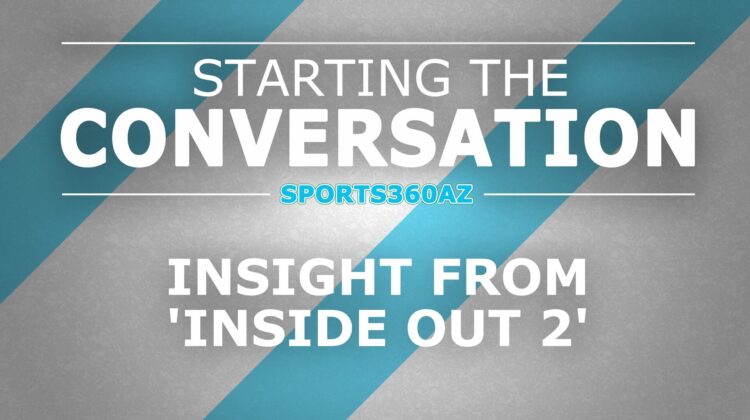I know what you might be thinking based on the headline above. Why is Jordan writing about an animated movie on a mental health in sports platform?
Well, I saw the box-office success this week and the plot of the movie is relevant in this space.
There may be some small spoilers, so consider this your warning if you plan to see it soon.
Brief overview
The new Pixar blockbuster follows a teenage girl named Riley, who plays hockey and has hit puberty, which leads to new emotions that challenge and change her identity. One of the newest emotions is anxiety, which many people let run their lives starting in adolescence.
Pixar’s ‘INSIDE OUT 2’ crossed $760M at the worldwide box office.
The film had a $200M budget. pic.twitter.com/uN6xrcrWKc
— The Hollywood Handle (@HollywoodHandle) June 25, 2024
Anxiety leads her down a path that alters her identity based on how she performs at hockey camp leading into high school. She starts downplaying the rest of her identity and consumes her self with athletic “success.”
Importance of discussing identity
This is a common occurrence among athletes (and anyone who goes all in on a career, passion, etc). Your identity becomes wrapped up in it. You say “I’m an athlete,” “I’m a lawyer.” “I’m a carpenter.”
It’s fine for your sport to play a role in forming your identity, but when you wrap your whole identity in it, trouble arises.
What happens when you’re not succeeding? What happens when life gets in the way? What happens when you can no longer play?”
Those are all questions that should be addressed with high school athletes and beyond on a regular basis. The most common struggle I hear athletes go through when they retire is a loss of identity. That amplifies any feelings of anxiety, depression, and other impactful emotions that dwell inside all of us.
I write this to say:
Parents, please make sure you tell your kids that they are more than their sport. Don’t berate them and make them feel like less when they’re struggling. Encourage them to spend time with themselves, working on other passions, without taking away from the sport they love.
Coaches, talk to your athletes about life away from sports. Make sure they are pursuing passions outside of their sport, taking care of business in the classroom and having a life. I know the goal is to get them 100% bought in, but that doesn’t mean sport should be consuming their identity.
Athletes, don’t just label yourself as an athlete. Make sure you take time to be away for even a day here and there (not saying to skip mandatory practices and weights). Yes, if you want to play at higher levels, you need to put in the work and sacrifice other parts of your lives, but you shouldn’t do that 24/7 for years at a time. Once you can longer play (no matter how successful you become), there will be an identity crisis if you don’t allow other parts of your life to be part of your identity.





